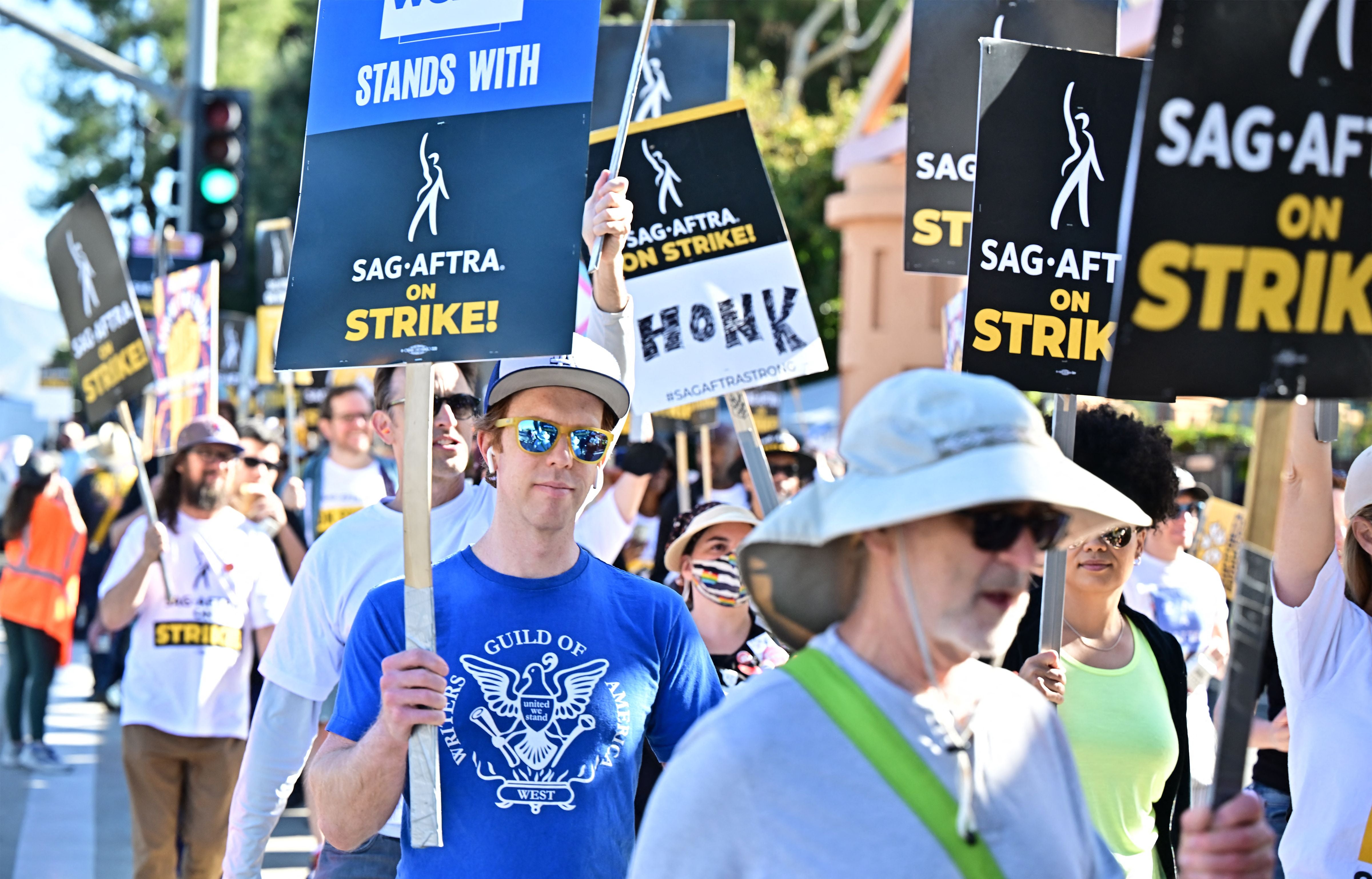Nicolas Cage hits out at CGI cameo in The Flash: ‘I did not fight that spider’
‘When I went to the picture, it was me fighting a giant spider, I did not do that,’ Cage revealed
Nicolas Cage has branded the use of artificial intelligence in film a “nightmare” as he shed bizarre new light on his cameo in the recent box office flop The Flash.
In a striking interview, Cage shared his thoughts on “inhumane” artificial intelligence after he was made to stand still on set before animators later added a fight sequence against a giant spider in post-edit.
Cage, 59, revealed he spent three hours on set shooting the cameo, adding that the lack of dialogue meant he had to “convey with my eyes the emotion”.
However, much to Cage’s surprise, the finished product was markedly different.
“When I went to the picture, it was me fighting a giant spider,” he told Yahoo Entertainment. “I did not do that. That was not what I did.”
In the film, a number of DC heroes from previous films, including Michael Keaton from Tim Burton’s Batman movies and Cage from the axed Superman Lives.
As the world considers the role AI will play in the future, the subject has proven to be a major stalling point in negotiations around the ongoing actors’ strike.
While the scene was created using CGI rather than AI, the Ghost Rider star admitted that he still found it baffling. “It was CGI, OK, so that they could de-age me, and I’m fighting a spider,” he said. “I didn’t do any of that, so I don’t know what happened there… I just think that they did something with it, and again, it’s out of my control.
“I literally went to shoot a scene for maybe an hour in the suit, looking at the destruction of a universe and trying to convey the feelings of loss and sadness and terror in my eyes. That’s all I did.”

Following the release of The Flash, which starred Ezra Miller as the titular superhero, Burton spoke out criticising the digital recreation of his characters.
“It goes into another AI thing, and this is why I think I’m over it with the studio. They can take what you did, Batman or whatever, and culturally misappropriate it, or whatever you want to call it,” he said. “Yhey can do whatever they want… I’m in quiet revolt against all this.
Referencing Burton’s comments, Cage continued: “I know Tim is upset about AI, as I am… I would be very unhappy if people were taking my art… and appropriating them. I get it. I mean, I’m with him in that regard. AI is a nightmare to me. It’s inhumane. You can’t get more inhumane than artificial intelligence.”
The use of AI in film has been at the forefront of discussion in recent months due to the ongoing SAG-AFTRA strikes. AI was a major issue on the table in the writers’ strike, which came to an end in October, with the union securing significant boundaries ensuring AI-generated content cannot be used as “source material” and that studios “cannot use AI to write scripts or to edit scripts that have already been written by a writer”. When the writers’ strike first began in May, the studios reportedly refused to even negotiate on the topic of AI and generated content.

For actors, it’s been an equally thorny issue. SAG-AFTRA wants guardrails around the use of AI to digitally recreate performers’ likenesses, including consent and a minimum compensation payment for such use. They also want to limit AI consent to single projects, rather than multi-project franchises.
SAG-AFTRA and the group representing studios, the Alliance of Motion Picture and Television Producers (AMPTP) will resume talks on Thursday (2 November), with artificial intelligence reportedly the main issue being discussed.
An email sent to union members on Wednesday (1 November) read: “The Negotiating Committee met today to discuss and finalise our response to the AMPTP AI counter-proposal which we received yesterday. The negotiators then met with AMPTP representatives for more than three hours this afternoon and evening to present and review our revised proposal.”
Join our commenting forum
Join thought-provoking conversations, follow other Independent readers and see their replies
Comments